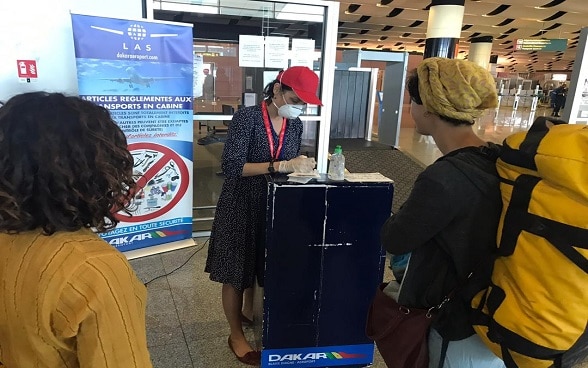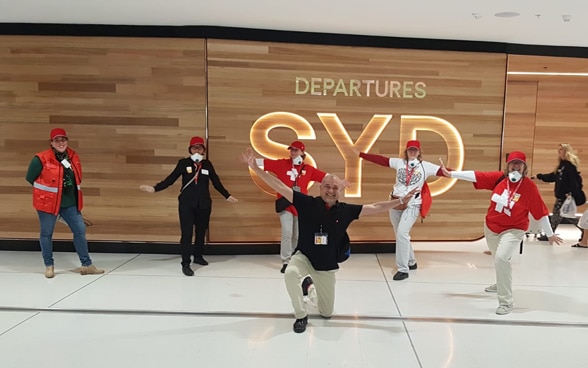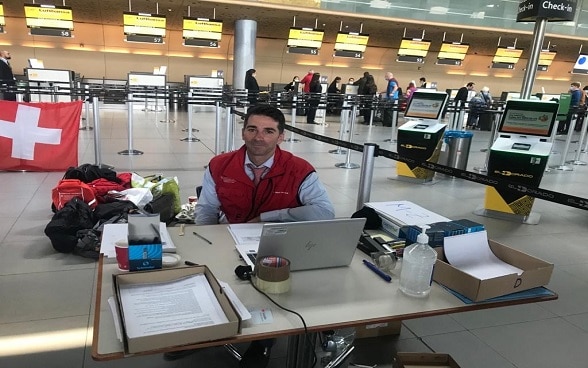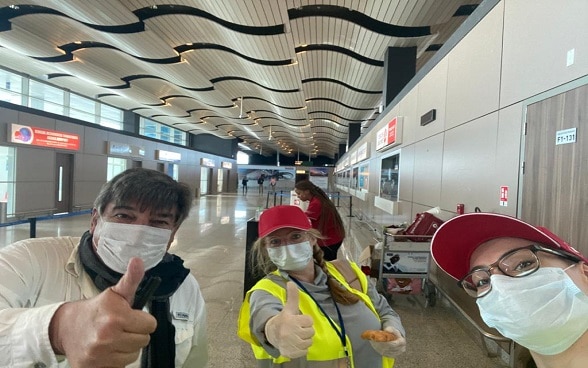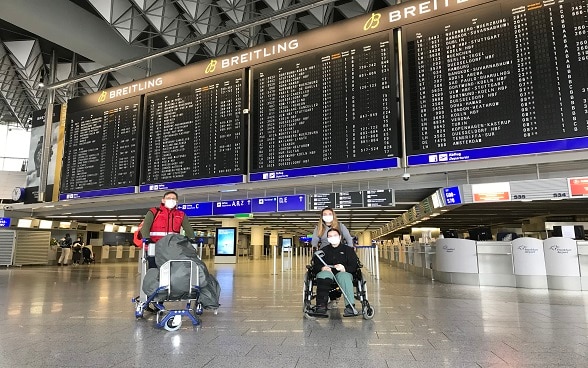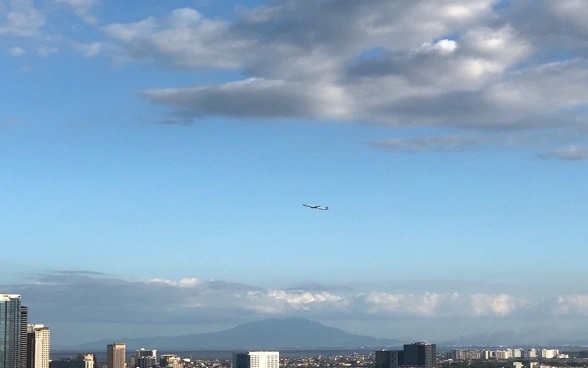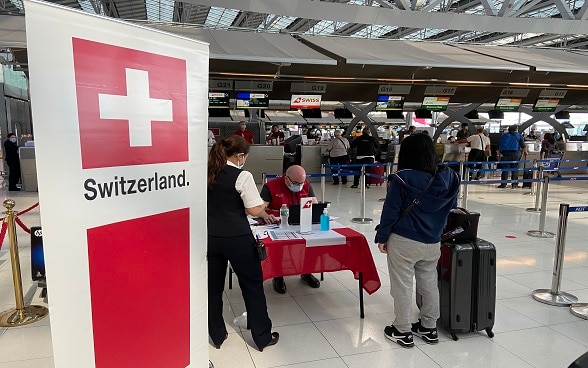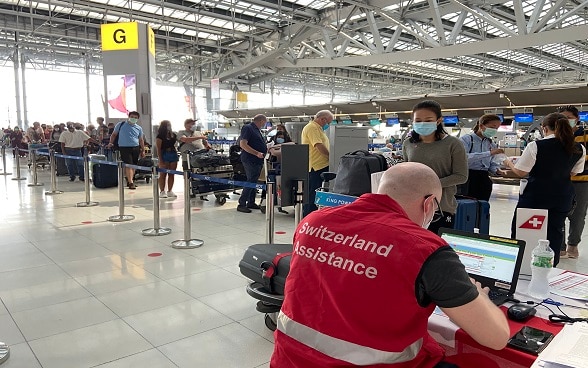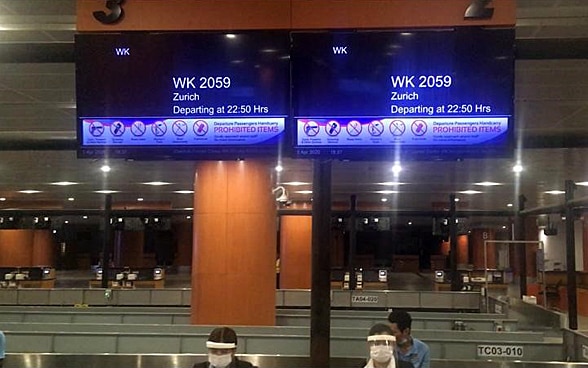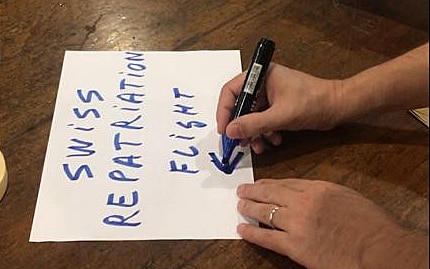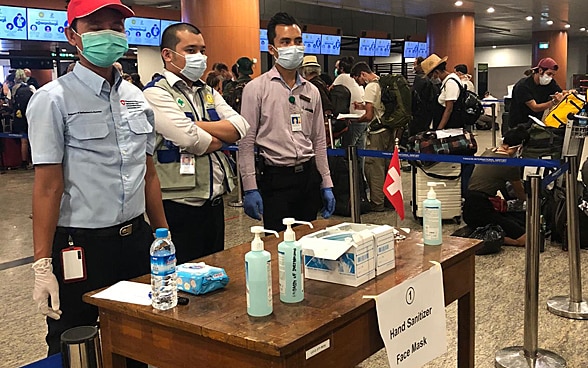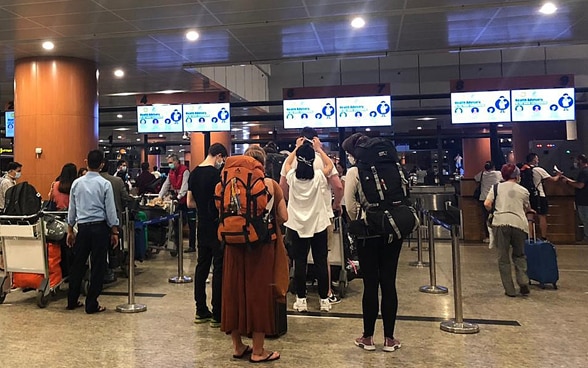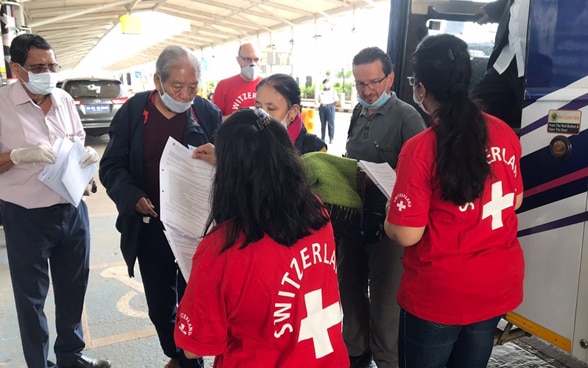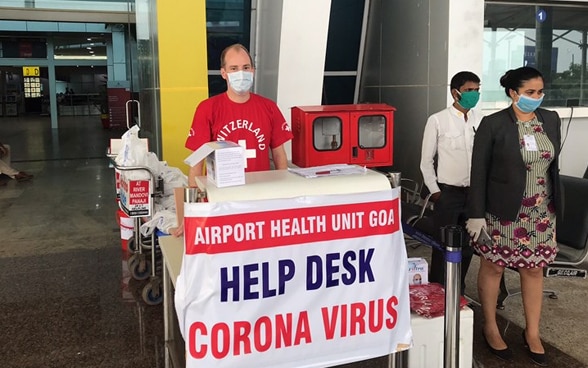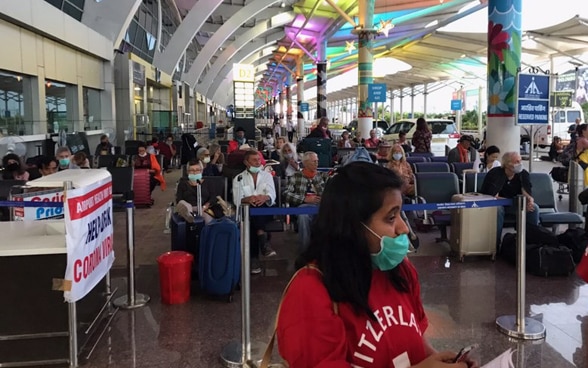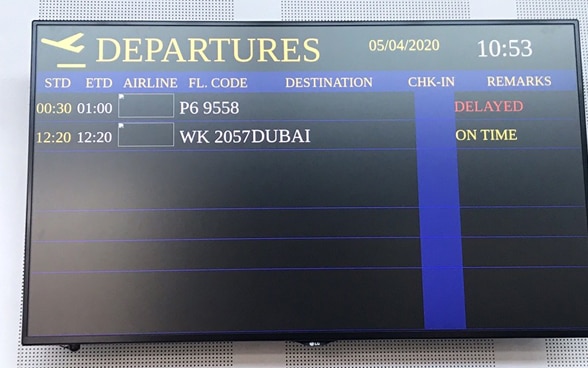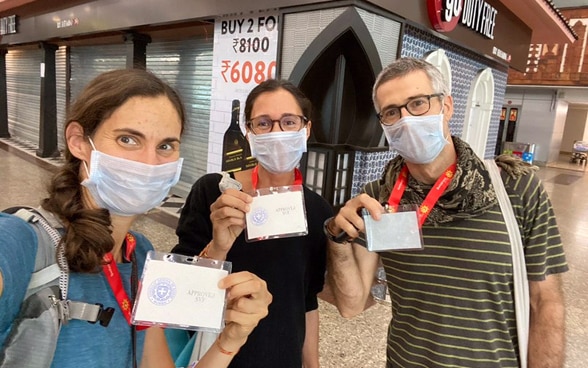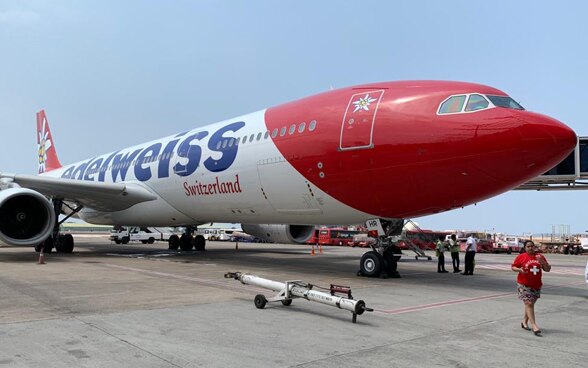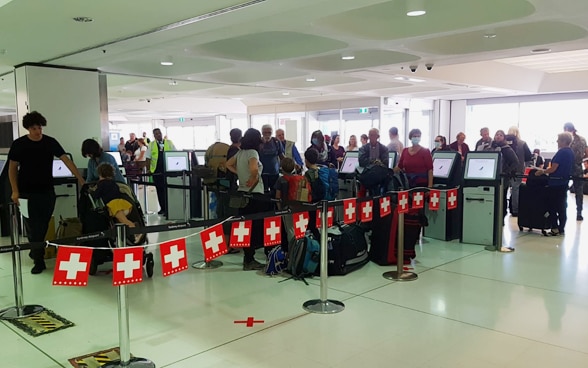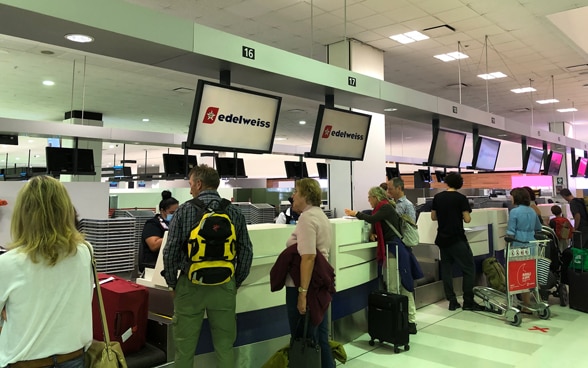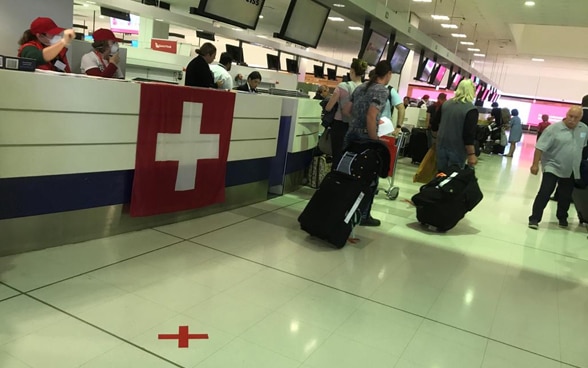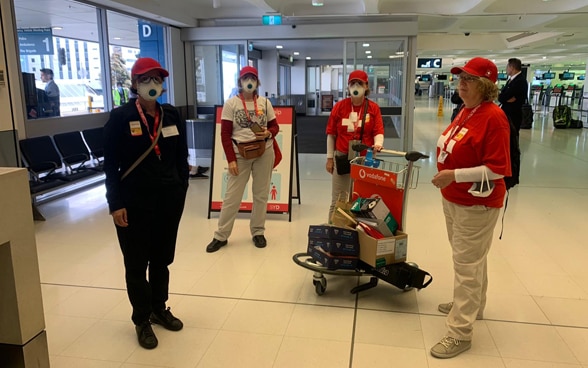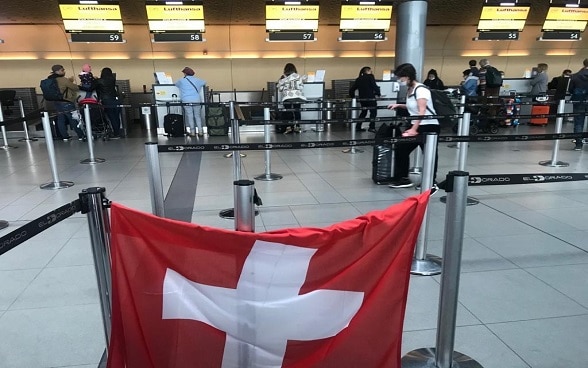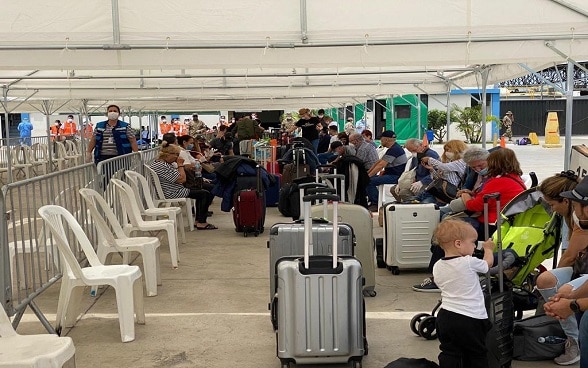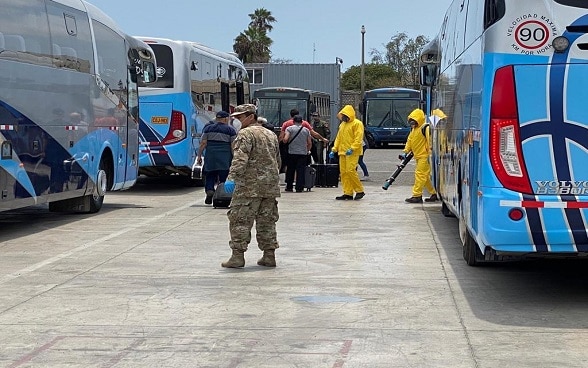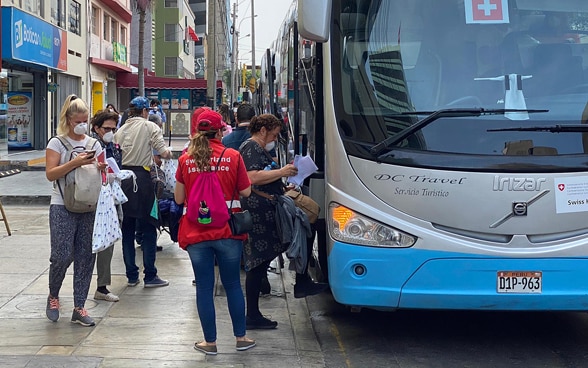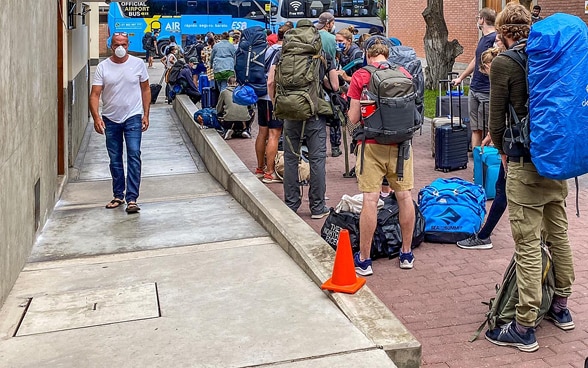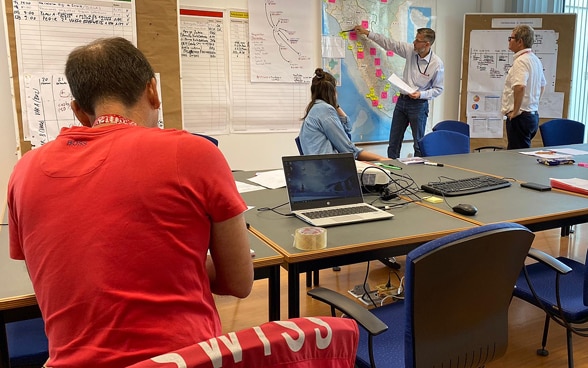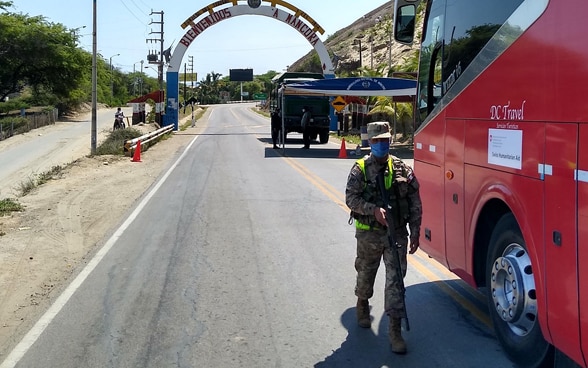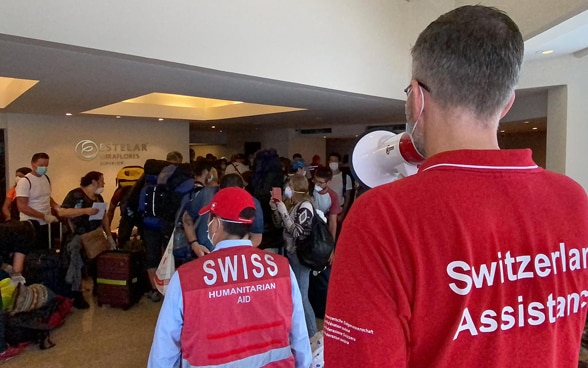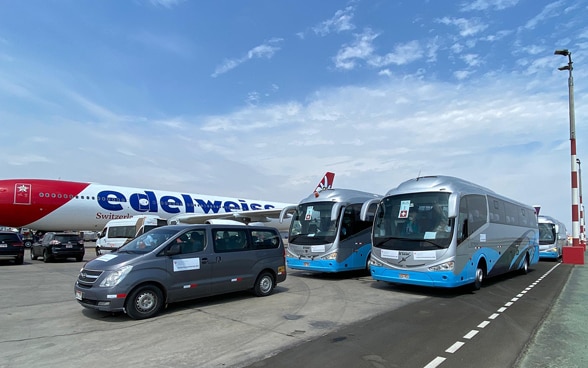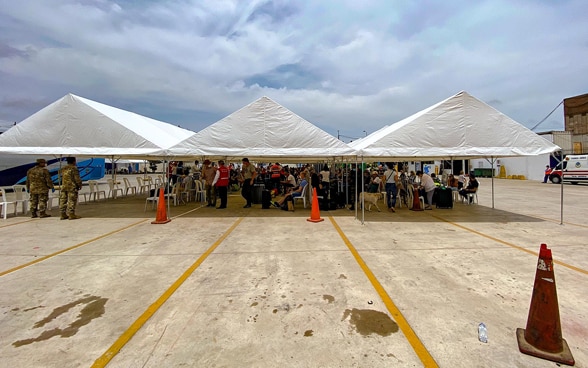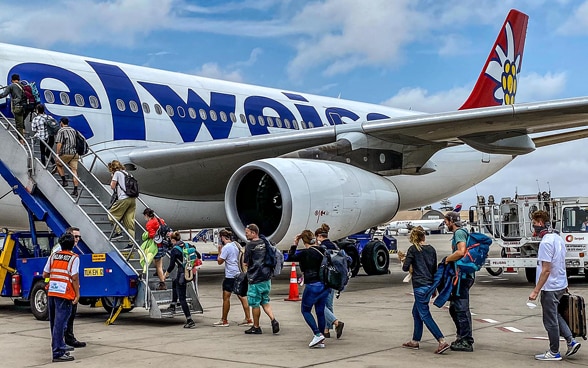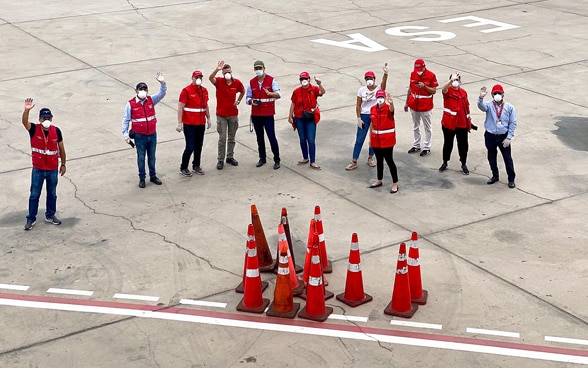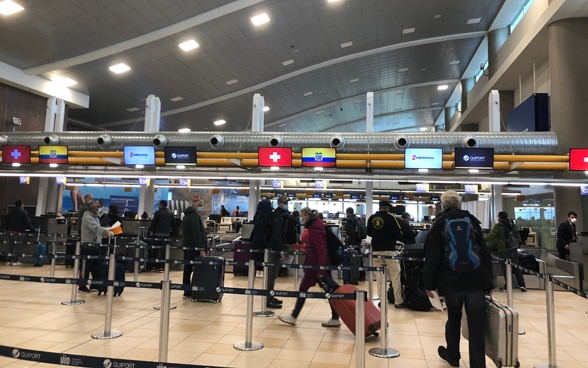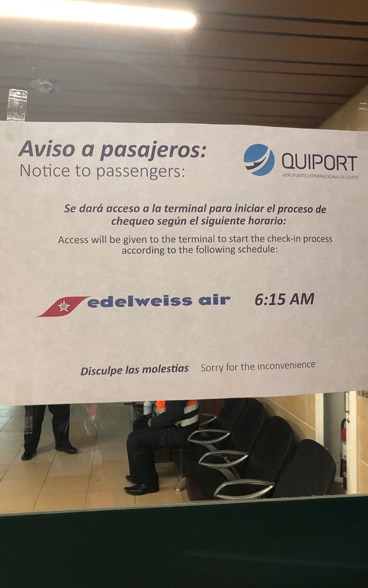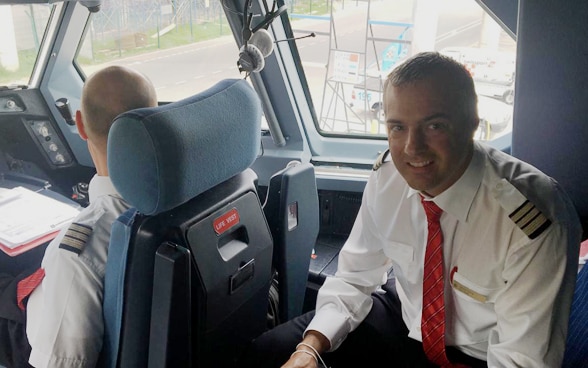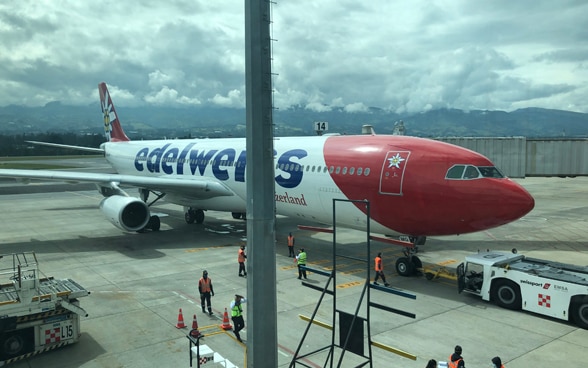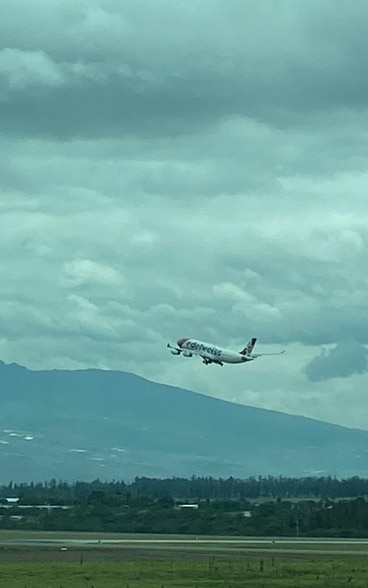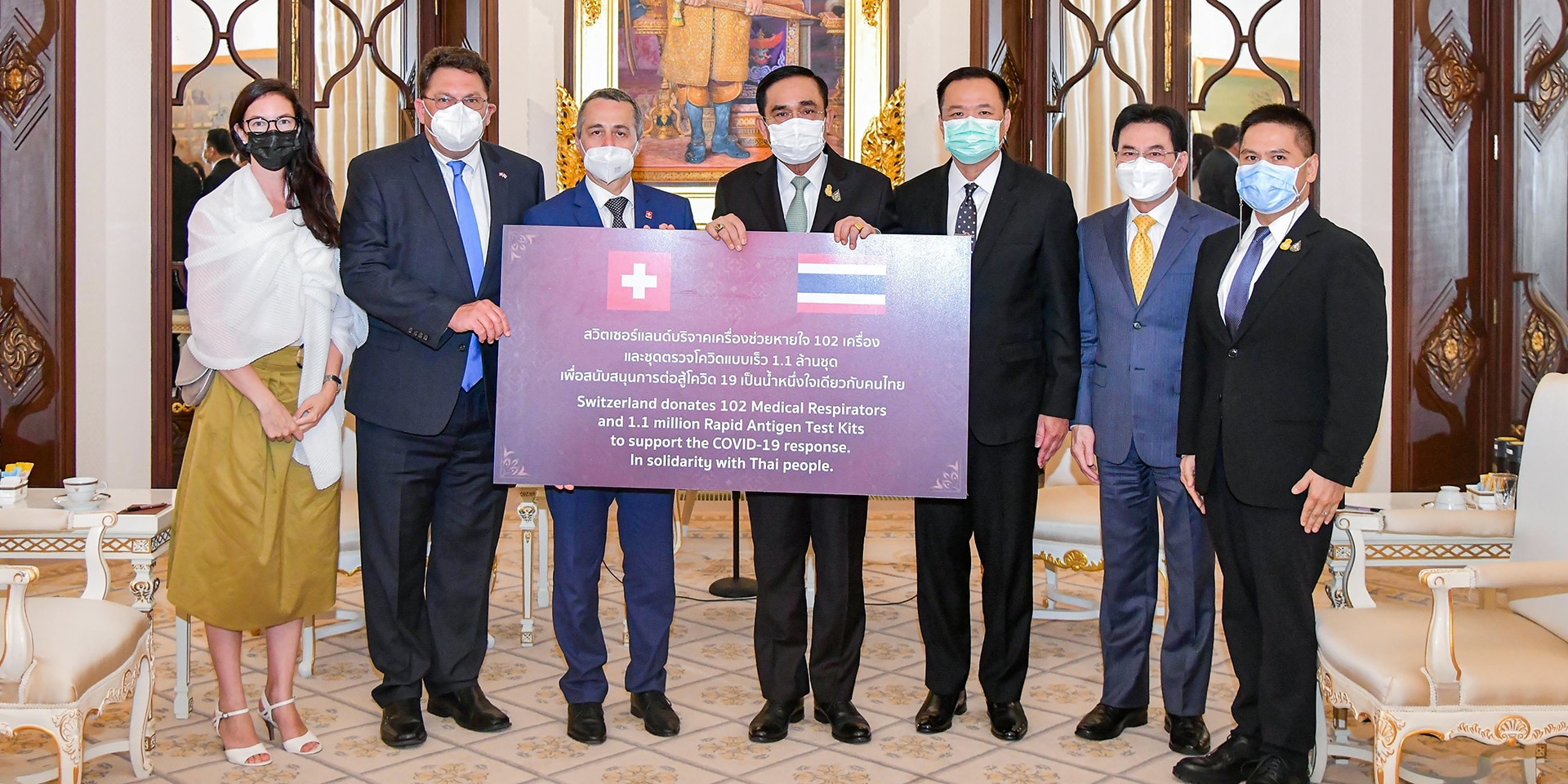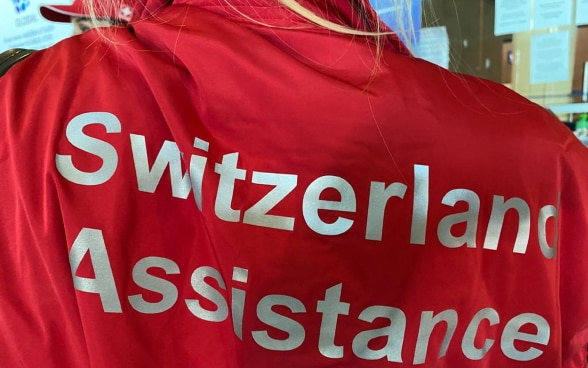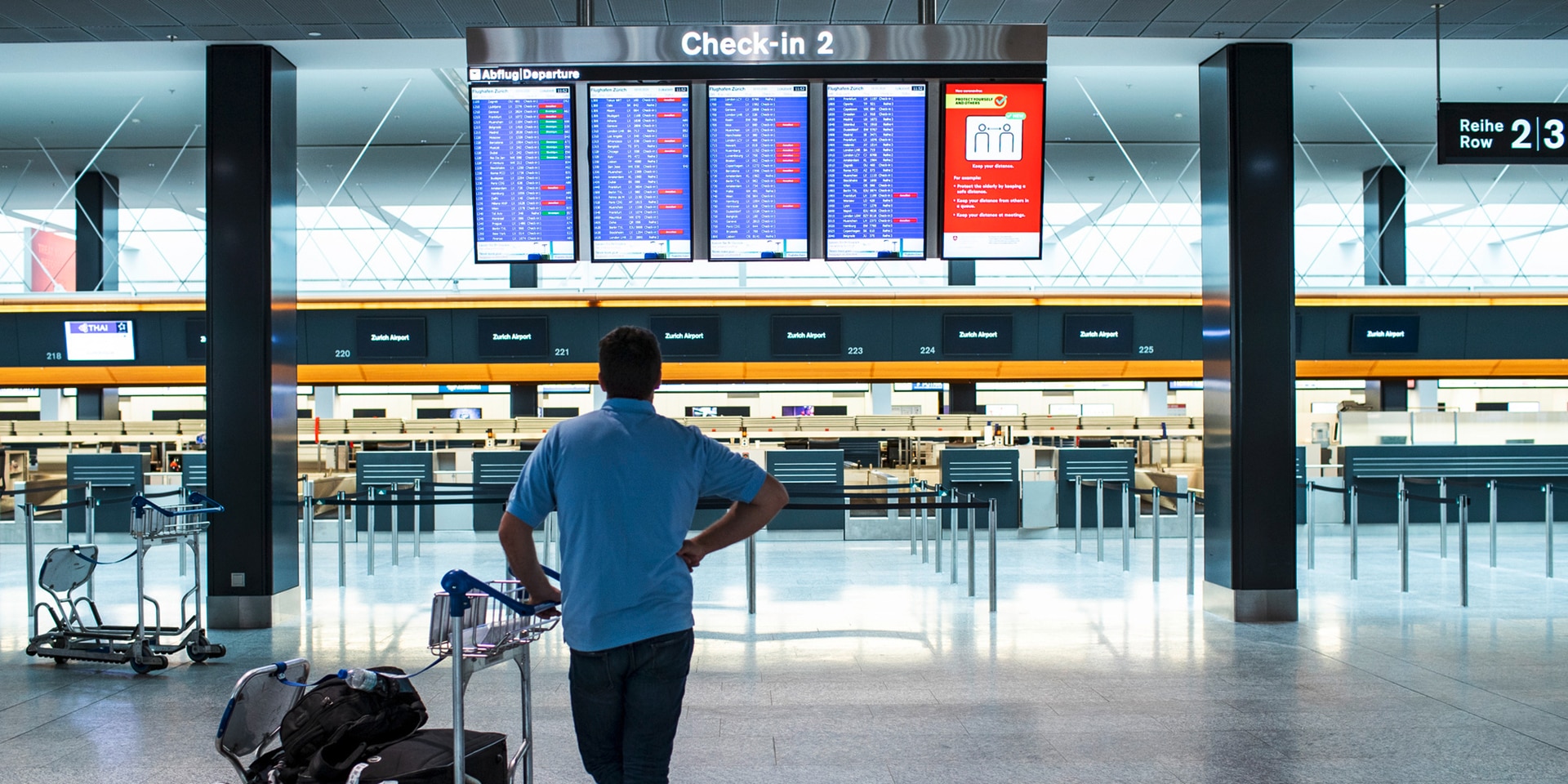"Our presence worldwide allows us to provide quick, effective assistance."
When COVID-19 broke out, tens of thousands of Swiss citizens were travelling abroad. In a first phase, the FDFA asked them to organise their return journey themselves using the commercial travel options available. When this was no longer possible owing to travel restrictions in many countries, the FDFA organised repatriation flights from areas in which there were especially many Swiss travellers. Now, in a third phase, the FDFA is supporting Swiss travellers for whom no solution has yet been found to help them to return home. At the FDFA, the Consular Directorate headed by Ambassador Johannes Matyassy is in charge of this. The FDFA Helpline, which has handled tens of thousands of calls and emails from Swiss citizens in connection with the coronavirus crisis, also belongs to the Consular Directorate.

Ambassador Johannes Matyassy: "In my opinion, the current crisis shows impressively what the value of our representation network is, with around 170 representations abroad and 210 honorary representations". © Keystone/FDFA
Mr Matyassy, in connection with the coronavirus crisis, what kind of enquiry does the helpline handle most often?
Since mid-December 2019, the FDFA Helpline has received a growing number of enquiries in connection with COVID-19. At first these mainly concerned China, then increasingly other countries. At first, the enquiries mainly came from travellers whose flights were cancelled or who were subject to other travel restrictions. Then people started asking the FDFA to issue advice on whether or not to travel to certain countries. This type of enquiry often came from people hoping to claim back expenses from their travel insurance companies for already booked journeys.
After the Federal Council asked Swiss travellers abroad to return, the Helpline was inundated and there was a whole new dynamic. You can guess how busy we were from the figures.
The Swiss are keen travellers. Before the pandemic, Swiss people made an estimated total of 16 million journeys with at least one overnight stay per year.
There are also 770,000 Swiss nationals living abroad in all countries of the world except Turkmenistan, Tuvalu, and Nauru. Some of them live in remote regions that are difficult to access even in normal circumstances. About 20% are over 65 and thus in an at-risk group when it comes to COVID-19.
What were the main concerns?
After the Federal Council asked people to return home, the FDFA unsurprisingly received a lot of requests for assistance. Initially, most travellers – and often their worried relatives – asked how they could get home under their own steam, what flights were still operating, and whether the FDFA could help to organise transport and accommodation. When these options ran out and the FDFA launched the biggest repatriation action in its history, people wanted to know where to register for repatriation and where they needed to go. They were also asking whether they would have to pay for the repatriation, why the FDFA only flew to selected destinations and why not all seats were reserved for Swiss nationals, why some were reserved for other nationalities.
Now we are getting more and more enquiries from people who are temporarily stranded somewhere in the world with no way to get home. We are currently also receiving more enquiries and requests for support from Swiss nationals who live abroad.
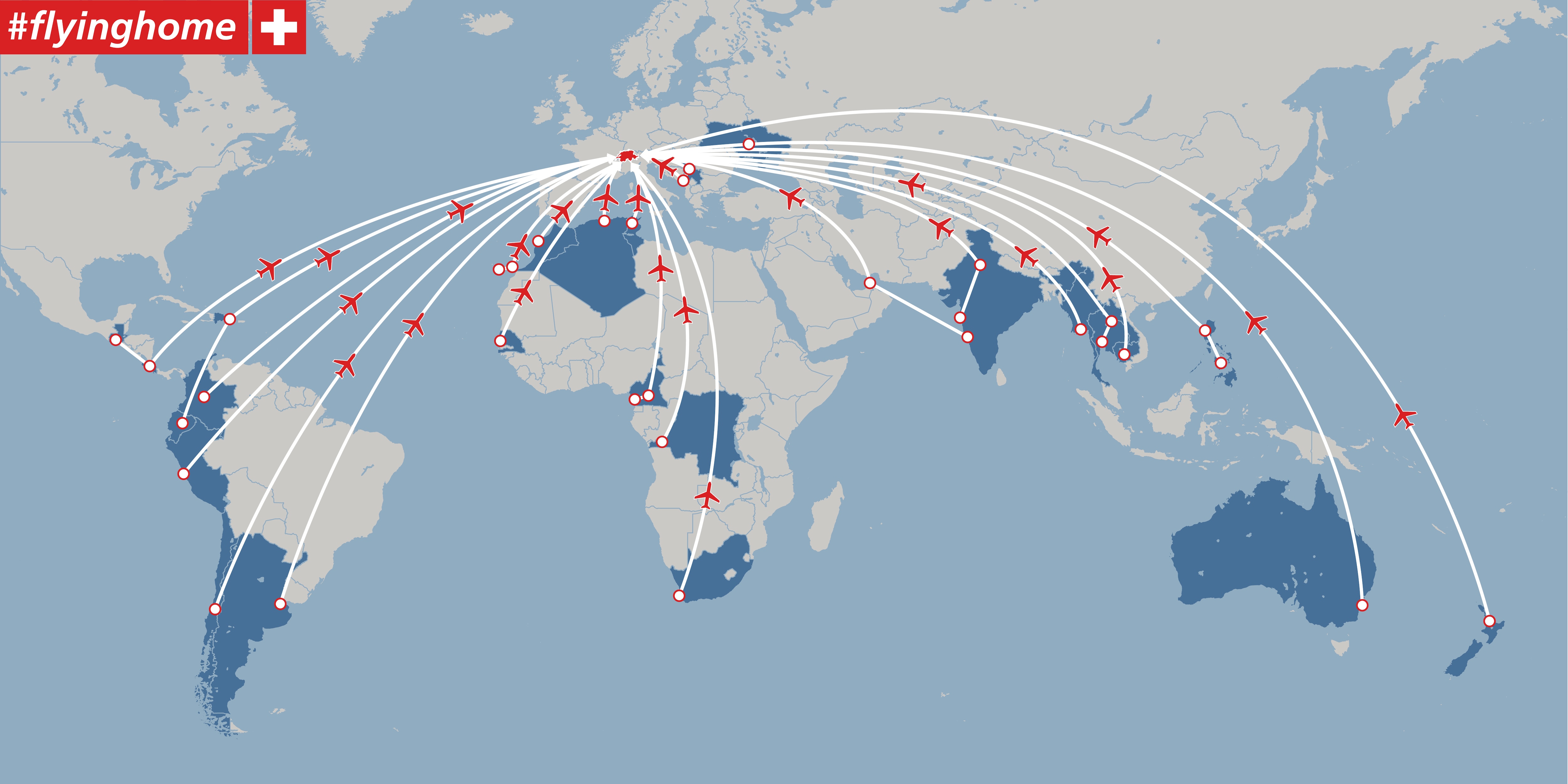
The FDFA with the help of the representations has organised over 30 repatriation flights in recent weeks. Now this effort is being scaled back and the next phase focuses on the representations providing support for Swiss citizens. What does this support entail? After all, the Swiss representations have always had the duty to support Swiss citizens.
In most cases, people for whom it was ‘easy’ to travel have been able to return home. Those who remain are in complex situations. In addition to those temporarily stranded, there are people who cannot travel e.g. for medical reasons. There are also some people who have not yet made any attempt to return home, and who would now like to leave, if possible with the support of the FDFA, having only just fully realised their situation.
Finally, we expect a surge in enquiries from Swiss citizens living abroad and are preparing for a sharp increase in consular assistance measures in favour of individual cases. This is especially likely in countries with poor healthcare and an unstable security situation, or countries that are unable to provide financial support for residents facing unemployment and loss of income.
What is your impression of the current crisis? Is the network of Swiss representations in a good enough position to help Swiss citizens abroad?
Yes. In my view, the current crisis shows how valuable our network of 170 representations abroad and 210 honorary representations is. We can only respond this quickly and provide uncomplicated, effective support tailored to the local situation because we have this wide network covering most of the planet.
How does the FDFA find out who needs support? And how do the representations get in contact?
The FDFA receives most of its information from the network of representations and the FDFA Helpline. The representations maintain contact with the registered Swiss citizens residing in their consular district, with travellers who have registered or are otherwise known to the representation, and with the local authorities. They communicate via their websites, and by email and SMS. The FDFA was able to send a text message to people who had registered their journey or residence in a particular country about the next repatriation action and about the arrangements they would need to make to secure a seat. The Swiss authorities don't have the capacity to contact all travellers individually, however.
What support can the representations offer?
The Swiss Abroad Act emphasises personal responsibility. Thus, Swiss citizens are expected to prepare well for their journey and to help themselves if they find themselves in a difficult situation. The FDFA assists people in these efforts in various ways. For example, it offers travel advice on the political and security situation – although it doesn't give health advice. You can also record your journey in the Travel Admin app so that in the event of an emergency, we know that you are abroad and can contact you.
What if these measures are not enough?
If someone has already done everything in their power or they are unable to find a solution independently owing to an acute emergency, the FDFA will provide support within the scope of consular assistance. The applicable passage of the Swiss Abroad Act states that the Confederation may also assist individuals and legal entities abroad if they cannot reasonably or are not in a position to safeguard their interests on their own or with the help of third parties. However, there is no legal entitlement to consular assistance. The Confederation may, for example, "refuse or limit assistance if […] it would put others in danger" or if "the person concerned has disregarded the Confederation's recommendations or has otherwise acted negligently" (SAA Art. 43).
Can you give an example?
A common form of consular assistance is to grant an emergency loan to those in financial difficulty to allow them to finance their return journey (or continued stay if the person is unable to return home) or urgent medical expenses. That means travellers still have the option of applying for a repayable emergency loan from the representation to finance their return journey or medical care if they are unable to find a way to finance it themselves (e.g. through support from family members, money transfer or by increasing the credit card limit).
What are the limits to the support provided by the FDFA? In other words, what can't the FDFA do to assist citizens?
As I said, we can't contact every traveller individually. We also can't offer direct assistance in every remote location. The same applies to war zones, etc. But in individual cases, the FDFA always tries to go the extra mile in an emergency and be pragmatic in the support it can offer.
At what point will the FDFA end this third phase of supporting Swiss people travelling abroad?
As I said, we are not only providing support for travellers, but also increasingly for Swiss citizens who live in other countries. For this reason alone, we do not anticipate that this support will suddenly be phased out, but we do assume that the situation will stabilise at some point. It is ultimately the pandemic, the authorities' responses and the political and economic consequences that will determine the time frame. I can nevertheless assure you that we will continue to support our fellow citizens beyond the end of this crisis, which we hope will be over soon.

